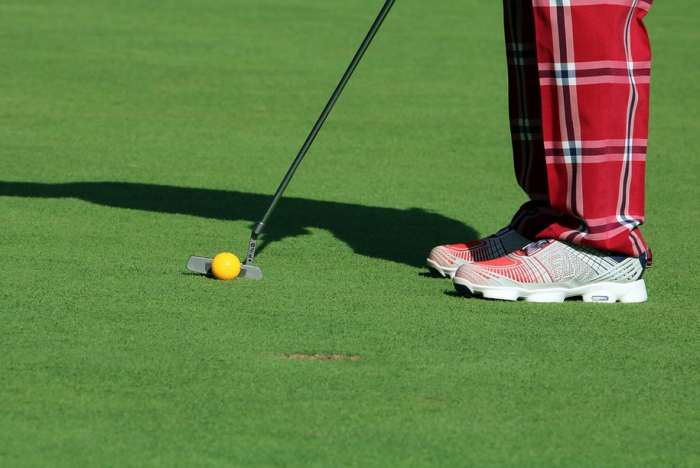How do I discipline a member of my golf club?
This guidance from the National Golf Clubs’ Advisory Association (NGCAA) looks at what golf clubs should consider if they feel they need to discipline a member.
I am often asked to advise in relation to member discipline within golf clubs, dealing with matters as diverse as sexual harassment, dangerous play on the course, fights in the car park and dress code violations.
When dealing with member discipline, it is very important that golf clubs follow a correct procedure and that members are afforded the opportunity to defend the allegations levelled against them. Central to the operation of a proper disciplinary procedure is the concept of natural justice. I sometimes see outdated procedures, framed within club articles, rules and byelaws, so it is worth taking some pointers from what I highlight below and to review existing procedures.
Just like a pair of golf-club-compliant trousers, ensure that the club disciplinary procedure is the right fit to stay legal!
What should be the jurisdiction of the disciplinary procedure?
Ideally, there should be a non-exhaustive list of what can constitute member misconduct, which would include breach of the club’s rules, regulations and byelaws, the rules of golf, as well as breaches of various club’s policies and procedures, such as equal opportunities and social media. There should also be a catch-all clause for any misconduct which is detrimental to the interests of the club, its members or any section of the club’s membership, or otherwise brings the club into disrepute.
There should be three stages to a disciplinary process: the investigation, the disciplinary hearing and the appeal hearing.

The procedure should allow for different people to conduct those three different stages. For example, the golf club manager or secretary carries out the investigation, with two committee members conducting the disciplinary hearing and two separate committee members hearing any appeal. The people who conduct each of those stages should have had no prior involvement in the case, or be a witness to any of the events or have any conflict or bias. It is important, for example, to exclude certain members of committee from discussions about ongoing disciplinary cases in order to preserve their impartiality so that they can be called upon later to hear any appeal.
Sometimes a disciplinary procedure can provide for the disciplinary and appeal panel to be drawn from the general membership, with their powers delegated from the managing committee or board of directors. This can very often provide the most flexibility for a club, since clubs can sometimes ‘run out of people’ once committee members’ conflicts or prior knowledge or involvement in the case have ruled them out of participation.
The investigating officer should carry out a reasonable and full investigation into the case. That may involve gathering documentary evidence and taking statements from relevant witnesses. One of the keys to a good procedure is that the matter should be dealt with promptly.
Once evidence is gathered, it should be submitted to the disciplinary panel. The investigating officer should not express any opinion or make any recommendation when he submits evidence to the panel.
The disciplinary panel should review the evidence and if there is a case to answer they should invite the accused member, by letter or email, to a hearing. The invitation should set out the detail of the allegations, provide a right to be accompanied by a fellow member and should enclose the relevant evidence. The member should be given a reasonable opportunity in advance of the hearing to prepare and to perhaps gather their own evidence for a defence.
At the hearing itself, the member should be afforded an opportunity to have their say. They may challenge the evidence, cross-examine witnesses and make representations about the case being put against them. The may also submit evidence in mitigation in an effort to reduce any sanction against them.
At the end of the hearing, the panel should adjourn whilst they make a decision. That may be a decision which they can reach on the same day which can be communicated verbally (initially) or it could be something which takes longer. Whenever it is decided, the outcome should be confirmed to the member in writing, as well as informing them of their right of appeal.
It would be sensible to put a time limit upon an appeal being lodged, if only to assist the parties in being able to get some closure and to move on. However, it is advisable to allow an appeal even when it is received outside of the strict time limit, since the failure to do so may be viewed as being a denial of the access to justice.
If an appeal is received by the club from the member, then an appeal panel should be convened. They would then follow a similar process to the disciplinary panel, allowing the member the opportunity to attend the hearing, accompanied again; the member may submit fresh evidence, produce new arguments or they may be looking, simply, for a fresh set of eyes and ears to look over and listen to their case. There should be consideration given to the way in which the appeal is run. Is it one which will be a full re-hearing of the original disciplinary, or will it be one which is a review of the process adopted by the disciplinary panel? Very often it is wise to have a full re-hearing, since that will allow the club an opportunity to put right any defect in its procedure from the original disciplinary hearing.
At the end of the appeal hearing, the panel should make its decision in a similar way to the process for the disciplinary panel, which should be confirmed in writing to the member.

For more advice on recruitment, employment or other matters of law affecting golf clubs, please contact NGCAA chief executive Alistair Smith.
The National Golf Clubs’ Advisory Association (NGCAA)
The Threshing Barn, Homme Castle Barns,
Shelsley Walsh, Worcestershire, WR6 6RR
Tel: 01886 812943
email info@ngcaa.co.uk















Let me tell You a sad story ! There are no comments yet, but You can be first one to comment this article.
Write a comment